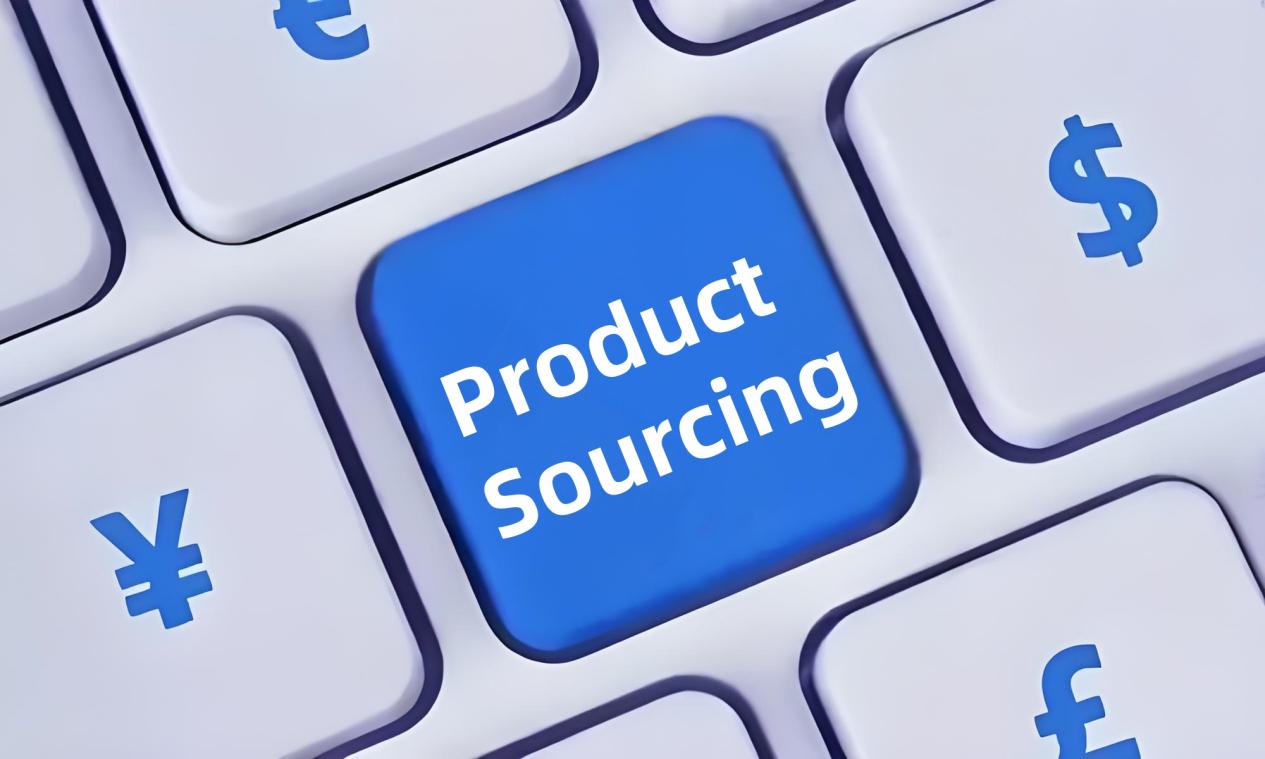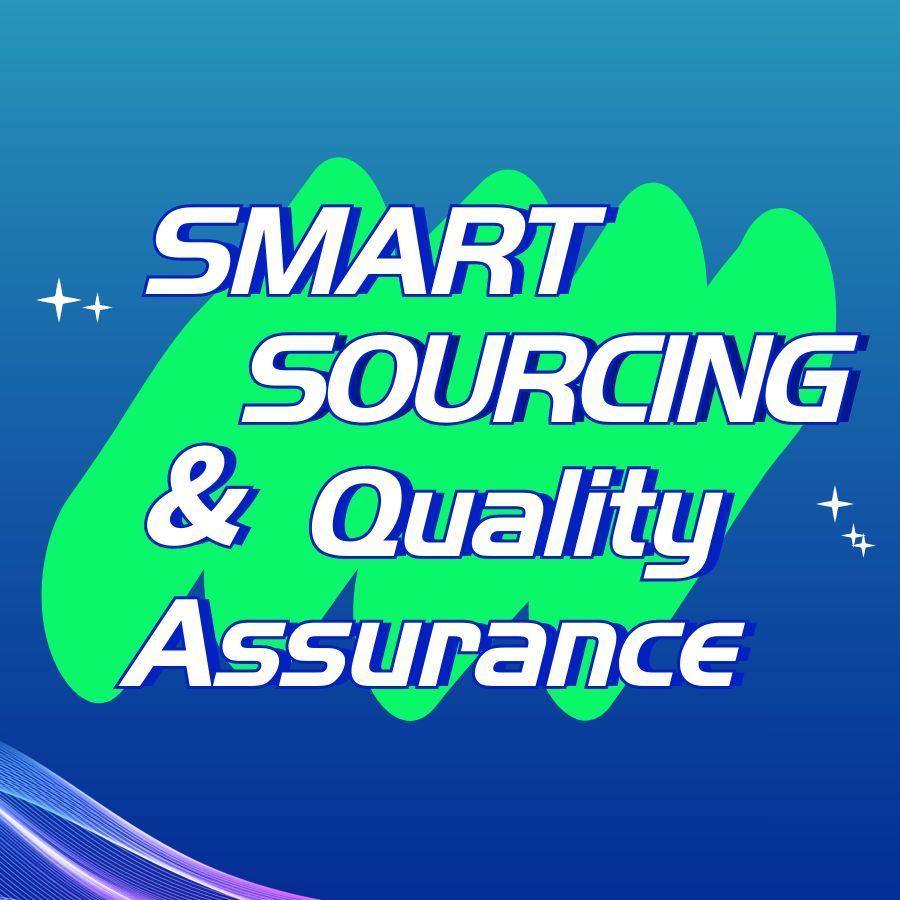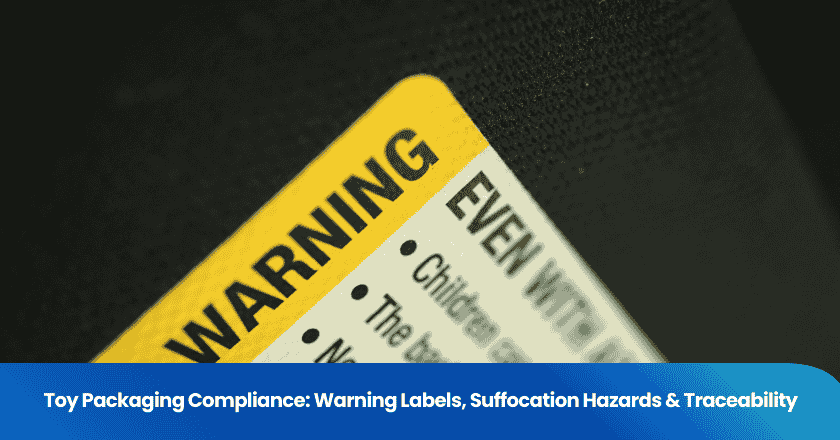
In the global business environment, product sourcing companies may be silent in the commercial trade process, but they are the mainstay of the process.
A product sourcing company focuses on finding, evaluating, and purchasing various goods or services from the market on behalf of clients, thereby ensuring that businesses can obtain the required items at a reasonable cost, with guaranteed quality and supply stability.
This article will provide a scientific explanation from the aspects of the definition, development and evolution history, general process, special advantages, selection timing, and how to choose the right product sourcing company.
The concept of a product sourcing company
Product sourcing companies are generally enterprise entities that focus on procurement matters. Mainly engaged in product sourcing, supply chain management, and distributing the purchased products to purchasers, retailers, wholesalers, or direct consumers. The core business of a product sourcing company is to find suitable sources of products, establish cooperative relationships with suppliers, ensure product quality and supply stability, and meet market demands.
In simple terms, the services of a product sourcing company include but are not limited to market research, supplier selection, price negotiation, contract signing, order tracking, and quality control, helping client companies complete procurement tasks efficiently and at a lower cost.
Evolution history of product sourcing company
Procurement, as a fundamental aspect of business operations, involved procurement and communication before the formation of the modern commercial prototype.
Especially after entering the 20th century, with the intensification of market competition and the rise of supply chain management, procurement has gradually transformed from a simple purchasing behavior into a comprehensive strategic activity. Product sourcing companies emerged against this backdrop, using specialized services to help enterprises efficiently complete procurement tasks in a complex market environment.
Over the past century, the development of product sourcing companies has gone through several important stages:
Initial stage
With the acceleration of urbanization and the formation of the market economy, specialized markets have been established, enabling buyers and sellers to conduct transactions more conveniently.
After companies began to realize the necessity of professional procurement, some of them started to set up specialized procurement departments or establish product sourcing companies to conduct large-scale material procurement on behalf of the enterprise.
In the initial stage, the product sourcing company mainly conducts supplier search and product sourcing through manual and traditional channels.
Information stage
Starting from the mid-to-late 20th century, with the development of information technology, product sourcing companies began to use email, spreadsheets, and databases to manage supplier information and purchase orders, improving efficiency.
Based on the support of informatization and the improvement of information acquisition efficiency, the product sourcing company gradually forms a professional team that can be responsible for evaluating suppliers, bidding, negotiation, and contract management. The professional level of procurement activities continues to increase.
Public procurement has gradually become an independent discipline and field, and government or national procurement activities have given rise to a large number of product sourcing companies or departments.
Digitalization stage
Entering the 21st century, with the rapid development of Internet plus technology, digital sourcing has been widely applied in product sourcing activities.
The popularization of e-commerce and Internet plus technology enables product sourcing companies to conduct more efficient and transparent procurement activities through online platforms and electronic procurement systems, achieving rapid communication and transactions with suppliers. The digitalization and networking of the procurement process further improve the efficiency and transparency of procurement.
Using technologies such as the Internet of Things, big data, and artificial intelligence, a product sourcing company can achieve automated and intelligent management of the supply chain, improving the response speed and quality of the supply chain.
Globalization and Intelligence Stage
With the application of big data, artificial intelligence and other technologies, modern product sourcing companies can achieve intelligent procurement decisions, supply chain optimization and real-time tracking, improving procurement efficiency and transparency.
With the help of international exchange platforms, product sourcing companies can expand their procurement markets, achieve cross-border procurement and cooperation, improve procurement efficiency, and reduce costs. As the concept of environmental protection becomes more popular, green procurement has become an important direction for enterprise development. Product sourcing companies pay attention to the monitoring and evaluation of environmental impacts during the procurement process, and choose products and services that meet environmental standards and sustainable development concepts.
What are the processes and considerations for product sourcing?
The product sourcing process involves multiple links, each with specific steps and considerations.
The following is a detailed review from demand determination to final acceptance:
Demand determination
Clearly specify the type, specifications, quantity, quality requirements, budget, and delivery time of the products or services to be purchased. Communicate and confirm the procurement needs with relevant departments (such as production, sales, finance, etc.) to ensure that all departments have a consistent understanding of the procurement plan.
Ensure the accuracy and completeness of demand information. Communicate fully with internal departments to avoid the procurement plan being disconnected from actual demand.
Supplier selection
Collect information on potential suppliers through market research, online searches, and obtaining recommendations. Conduct preliminary screening based on factors such as supplier reputation, qualifications, product quality, delivery capabilities, and price. Further evaluate candidate suppliers by reviewing qualifications, visiting factories, consulting performance records, and customer reviews. Based on the comprehensive evaluation results, select the most suitable supplier.
When selecting suppliers, it is necessary to comprehensively consider their comprehensive strength to avoid cooperation with unscrupulous suppliers. Keep records and reference materials of supplier evaluations for subsequent management and optimization.
Quotation Comparison
Send an inquiry sheet to potential suppliers, specifying the name, specifications, quantity, quality requirements, delivery date, and payment method of the product to be purchased. The suppliers prepare quotation sheets and respond according to the inquiry requirements. Compare the collected quotation sheets in detail, considering factors such as price, quality, delivery time, and service. Negotiate with the suppliers to obtain the most favorable price and terms.
Ensure the accuracy and completeness of the inquiry sheet so that the supplier can accurately quote. During the quotation comparison and negotiation process, maintain fairness and impartiality, without favoring any party.
Contract signing
Based on the negotiation results, draft a product sourcing contract to clarify the rights and obligations of both parties, including delivery time, payment method, quality standards, and liability for breach of contract.
The contract content is reviewed by the legal department or professionals to ensure the legality and validity of the contract. After both parties reach an agreement, the contract is formally signed and stamped by the authorized representative.
The terms of the contract should be clear and unambiguous to avoid any misinterpretation. Ensure the identity of the contract signatories and the validity of their power of attorney.
Logistics distribution
Confirm the order details with the supplier, including quantity, price, delivery time, etc. Count and verify the products to ensure they are consistent with the order; package the products to prevent damage during transportation; prepare the vehicles and personnel required for delivery. Deliver according to the planned optimal delivery route to ensure the products are delivered safely and on time to the designated location. Confirm the product delivery status with the customer and conduct a sign-off confirmation.
Ensure the safety and integrity of products during the distribution process. Maintain good communication with customers and promptly solve problems that arise during the distribution process.
Final acceptance
Prepare the necessary materials, equipment, and tools for acceptance according to the contract and product sourcing requirements.
Before acceptance, the product sourcing company should communicate with the supplier and confirm the acceptance terms and standards. The quantity, quality, and other aspects of the arrived products should be inspected according to the acceptance terms and standards. The acceptance should be strictly carried out in accordance with the terms of the contract to ensure the fairness and accuracy of the acceptance results.
Complete the acceptance record sheet, recording the acceptance results and any issues found. Record and archive the acceptance results for subsequent management and traceability. Handle the non-conforming products found during acceptance, such as returning, replacing, or claiming compensation.
Complete the payment and evaluate the entire product sourcing process for continuous improvement.
The special advantages of a product sourcing company
Product sourcing companies have several special advantages, which make them long-standing in supply chain management.
Here are some key advantages:
Professional product sourcing capabilities
Product sourcing companies usually have a professional procurement team with extensive market knowledge and procurement experience. They can more effectively identify potential suppliers, assess their qualifications and reputation, ensure the procurement of high-quality products, and help customers find the most suitable suppliers and products.
Cost savings
Focusing on procurement activities, product sourcing companies can usually reduce costs by bulk purchases, negotiating more favorable payment terms, etc. They can also use market insight to grasp price trends and make purchases at the right time to save costs.
Supply Chain Management
Product sourcing companies are skilled in managing complex supply chains, including cooperation with multiple suppliers, logistics coordination, and inventory management. This helps ensure timely product delivery and reduces the risk of supply chain disruptions.
Quality and Compliance
Professional product sourcing companies usually have a strict quality control process to ensure that the products purchased meet the specified quality standards.
Through strict supplier evaluation and quality control, ensure that the products and services purchased are of reliable quality, and enhance customer satisfaction for the enterprise.
Ensure that suppliers comply with relevant regulations and industry standards to reduce compliance risks.
Market Insight
Product sourcing companies usually have keen insight into market trends, can predict changes in demand, provide customers with valuable market information, and adjust their sourcing strategies accordingly. This helps companies better meet customer needs and maintain a leading position in a highly competitive market.
Risk management
The product sourcing company has rich market experience and supplier resources, and can more effectively identify procurement risks, including quality risks, delivery risks, and legal risks.
By establishing partnerships with multiple suppliers, product sourcing companies can spread risks and reduce dependence on a single supplier. When faced with supply chain disruptions or other risks, they can more flexibly adjust their strategies to mitigate potential losses.
Product sourcing companies provide efficient and reliable procurement solutions for enterprises through their advantages in professional procurement capabilities, cost-effectiveness, supply chain management, quality and compliance assurance, market insight, and risk management.
Grow your business with TradeAider Service
Click the button below to directly enter the TradeAider Service System. The simple steps from booking and payment to receiving reports are easy to operate.




